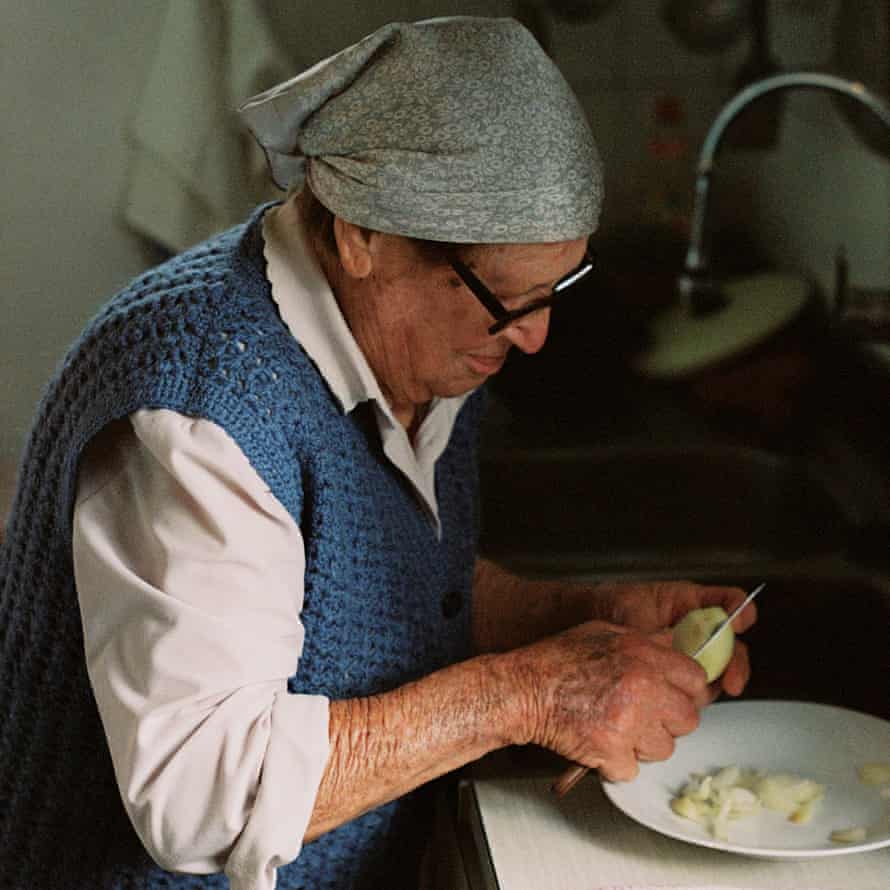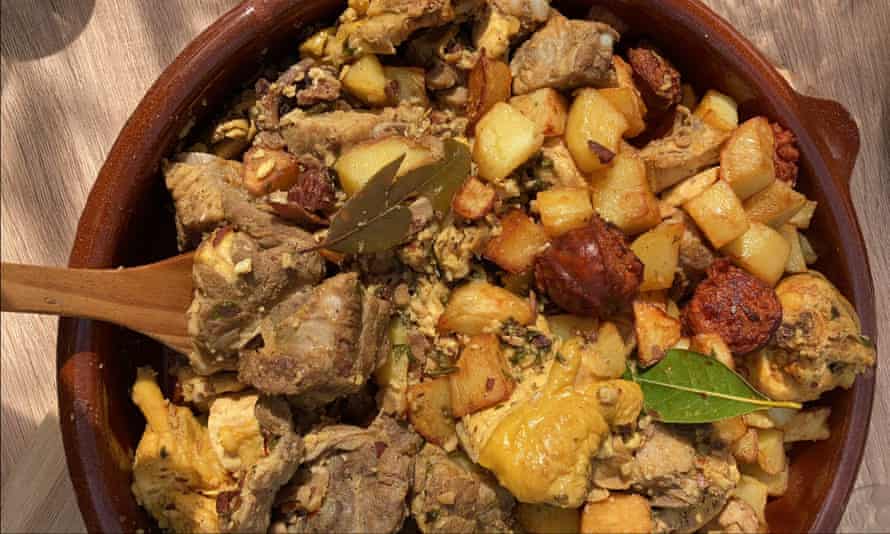Even after 13 years, I still find it strange to say I live in Ibiza. I have little interest in the clubs for which the island is renowned, so I instead embarked on a culinary exploration – a search that revealed a rich culture stemming from a long history of farming and fishing.
While many memorable meals here have involved fish, the dish that resonates with me most is meat-based, and one I imagine few visitors have sampled. Sofrit pagès is a tasty stew typically made with lamb and chicken, potatoes and two varieties of sausage. Sobrasada is cured in the manner of chorizo, though with a looser texture, and butifarra is a type of blood sausage akin to black pudding. These are usually made during the matanza, the traditional pig slaughter practised in late autumn by generations of farming families as a means of providing a year-round supply of food.
As with many classic dishes, the recipe for sofrit pagès was a result of what was to hand. Potatoes were plentiful, meat could be sourced from one of the many farms, and saffron had been brought to the island by the Moors many centuries prior. It does take time to make, though, and as time was often in short supply for those who spent long days tending to the rust-red earth, the dish was predominantly reserved for special occasions – a gastronomic labour of love.

I have enjoyed several renditions of sofrit pagès over the years, but the most memorable was prepared by nonagenarian sisters Eulalia and Maria, whose house in San Carlos village, in the island’s north-east, was once the village shop. I knew I was in good hands when I learned that my hostesses’ grandmother had been the cook who was called upon whenever there was a special occasion in the district.
While the women argued about the nuances of the recipe, I discovered a door to the past. A room below the kitchen contained an ancient stone mill, to which locals would deliver their harvested olives to be pressed. However, for reasons unknown, processing oil from the island’s plentiful supply of almonds was illegal, and this extraction took place illicitly, under cover of darkness.
As I enjoyed an afternoon of Ibicencan hospitality, steeped in stories and the dappled sunshine of early spring, the amber-hued plate in front of me offered an insight into the history of the island – an edible reminder of why I am still here.
Sofrit pagès

Serves six, generously
1 organic or free-range chicken, cut into 12 pieces
600g lamb neck, cut into chunks
Salt
Black pepper
Olive oil
Sprig of rosemary
6 bay leaves
1 onion, halved
12 cloves of garlic, peeled
Sunflower oil
1.5kg potatoes, peeled and cut into rough 2cm cubes
100g raw almonds
A generous handful of flat-leaf parsley, roughly chopped
Pinch of saffron
1 tsp cinnamon
300g butifarra, cut into thick slices
300g sobrasada, cut into thick slices
Season the chicken and lamb with salt and pepper and brown in batches in a little olive oil. Place the meat in a large pan with the onion, a sprig of rosemary, three bay leaves, six cloves of garlic and a pinch or two of salt and black pepper. Add cold water until the meat is just covered. Bring to the boil and then simmer for 45-60 minutes until meat is tender, skimming occasionally.
Strain the broth through a sieve and discard the aromatics, reserving the meat. Skim most of the fat from the cooking liquid and set aside.
Heat 5cm of sunflower oil to 180C and fry the potatoes until golden (about 15 minutes). Drain on kitchen paper and sprinkle with a little salt.
In a pestle and mortar, crush the almonds with the remaining garlic and the parsley until a paste has formed. (This can also be done in a food processor). Gently fry this mixture in a little olive oil for about 10 minutes until fragrant, then add 300ml of the reserved cooking liquid, the other three bay leaves, the saffron and cinnamon, and a little salt and pepper. Simmer gently for about five minutes to infuse the flavours.
In a separate pan, fry the butifarra and sobrasada for a few minutes until they are lightly coloured and some of the fat has rendered out.
Place the lamb and chicken in a large pan, with the butifarra and sobrasada and any fragrant oil that remains in the pan. Add the almond mixture, cover with a lid and cook on a low-to-medium heat for 10 minutes, gently stirring occasionally. Add a little more liquid if required.
Add the potatoes and cook for a few minutes more to heat through. Most of the liquid should be absorbed. Season with salt and pepper to taste before serving.
Christopher English is a writer and private chef





